4th COGNO Annual Scientific Meeting
Saturday 6th August -- Sunday 7th August 2011
Macquarie Graduate School of Management, Sydney
A very successful Annual Scientific Meeting was held on the weekend of 6th and 7th August 2011. The Joint Macquarie/COGNO Neuro-Oncology Day (in conjunction with the Macquarie Neurosurgery Research and Clinical Research Symposium) was well attended, and COGNO was pleased to host three international invited speakers as part of the COGNO program:
· Dr Annika Malmstrom, Sweden
· A/Prof Wai Hoe Ng, Singapore
· A/Prof Christopher Ang, Singapore.
Highlights included the interesting and relevant presentations by our international speakers, a very popular ‘speed-dating’ session with leading translational scientists, and updates on current COGNO clinical trials.
(Program here and Speakers below)
COGNO thanks Cancer Australia, Cancer Institute NSW, Roche, MSD Oncology and Elekta for their support of this year’s Annual Scientific Meeting

INTERNATIONAL SPEAKERS
DR ANNIKA MALMSTRÖM
 Dr Annika Malmström is a specialist in General Oncology. She was born in Sydney, Australia, but moved to Europe with her family at age 5 and is now living and working in Sweden.
Dr Annika Malmström is a specialist in General Oncology. She was born in Sydney, Australia, but moved to Europe with her family at age 5 and is now living and working in Sweden.
She qualified in Medicine at the Universities of Uppsala and Linköping, and obtained her education in Oncology at the University Hospital in Linköping. In 1989, she visited the lab of Professor Martin Tattersall at Sydney University, where she conducted research on chemotherapy and apoptosis.
Dr Malmström worked as a senior consultant at the Department of Oncology at the Unviersity Hospital in Linköping until 2009, where she was in charge of the breast cancer and neuro-oncology group. She is a member of the Swedish National Brain Tumour Group, the Scandinavian Neuro-Oncology Society and also the Nordic Clinical Brain Tumour Study Group. She has initiated and conducted studies in neuro-oncology and breast cancer, including the recent phase III multi-centre randomised controlled Nordic trial for elderly patients with glioblastoma, which addressed clinical outcomes as well as quality of life issues in this challenging patient group. She has also written popular science information on neuro-oncology for the general public.
Dr Malmström has since worked for two years as a senior consultant at the Unit of Palliative Home Care at the University Hospital in Linköping.
ASSOCIATE PROFESSOR WAI HOE NG
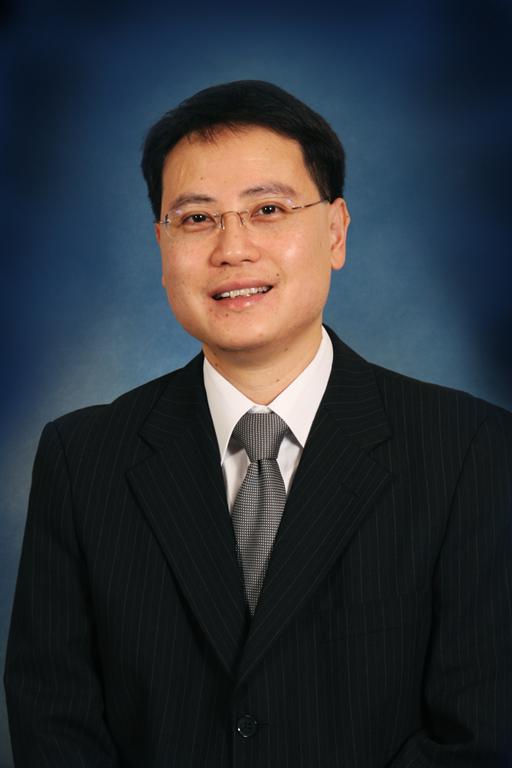 Wai Hoe Ng is Senior Consultant Neurosurgeon and director of Surgical Neuro-oncology at the National Neuroscience Institute, Singapore. He is Adjunct Associate Professor and a Co-Director of the Neurobiology Laboratory at Duke-National University of Singapore Graduate Medical School, Singapore. He is a graduate (MBBS) from the medical school at the National University of Singapore (NUS) in 1994 and underwent neurosurgical residency training at the National Neuroscience Institute (Singapore), Royal Melbourne Hospital and Royal Children's Hospital in Melbourne, Australia. He is a fellow of the Royal Australasian College of Surgeons (FRACS) and Board Certified in Neurosurgery by the Specialist Accreditation Board of the Ministry of Health, Singapore. He also has a Doctorate in Medicine by Research (MD) from the National University of Singapore.
Wai Hoe Ng is Senior Consultant Neurosurgeon and director of Surgical Neuro-oncology at the National Neuroscience Institute, Singapore. He is Adjunct Associate Professor and a Co-Director of the Neurobiology Laboratory at Duke-National University of Singapore Graduate Medical School, Singapore. He is a graduate (MBBS) from the medical school at the National University of Singapore (NUS) in 1994 and underwent neurosurgical residency training at the National Neuroscience Institute (Singapore), Royal Melbourne Hospital and Royal Children's Hospital in Melbourne, Australia. He is a fellow of the Royal Australasian College of Surgeons (FRACS) and Board Certified in Neurosurgery by the Specialist Accreditation Board of the Ministry of Health, Singapore. He also has a Doctorate in Medicine by Research (MD) from the National University of Singapore.
He underwent subspecialty fellowship training in neuro-oncology at the Royal Melbourne Hospital and Royal Children's Hospital in Melbourne, Australia, and doctoral training in basic neuro-oncology research at the National University of Singapore under the auspices of a scholarship from the Singapore Millennium Foundation. He also underwent further subspecialty fellowship training in stereotactic and functional neurosurgery at the Toronto Western Hospital, University of Toronto, Canada, and in paediatric neurosurgery/paediatric epilepsy surgery at the Hospital for Sick Children, University of Toronto, Canada. He was Sugita Fellow and visiting scholar at Nagoya University, Japan. A/Prof Ng has a keen academic interest and has published over 50 papers in peer-reviewed scientific journals and a few book chapters. He is the Deputy Editor for the Asian Journal of Neurosurgery and is a member of the Editorial Boards of the Journal of Clinical Neuroscience, World Neurosurgery, Minimally Invasive Neurosurgery, Journal of Central Nervous Disease, The Open Neurosurgery Journal, Neural Regeneration Research, and Asia-Pacific Oncology and Haematology.
A/Prof Ng's subspecialty interests are surgical neuro-oncology, stereotactic and fucntional neurosurgery, surgical neuromodulation, epilepsy surgery and paediatric neurosurgery. His research interests focus mainly on neuro-oncology, surgical neuronavigation and functional neurosurgery.
ASSOCIATE PROFESSOR CHRISTOPHER ANG
Christopher trained in neurosurgery at the National Neuroscience Institute (NNI), Singapore, and at the University of British Columbia in Vancouver, Canada. During his residency, he carried out bench research defining molecular mechanisms in oligodendrocyte development and myelination. He is currently a consultant neurosurgeon at the NNI with a sub-specialty practice in minimal access neurosurgery, neuro-oncology and neurotrauma/critical care. He also contributes to medical education as an Associate Professor at the Duke-National University of Singapore Graduate Medical School, where he co-directs the Brain and Behaviour programme.
AUSTRALIAN SPEAKERS
ASSOCIATE PROFESSOR MEERA AGAR
Associate Professor Meera Agar is the Director of Palliative Care, Braeside Hospital, HammondCare, Sydney. She is also the research lead for the South West Sydney Palliative Care Clinical Trials unit. Her research interests include delirium in advanced cancer, dementia end-of-life care, pharmacological and health service randomised controlled trials in palliative care and neuro-oncology supportive and palliative care research. She is the Chair of ImPACCT (Improving Palliative Care through Clinical Trials), the NSW collaborative trials group in palliative care.
ASSOCIATE PROFESSOR MICHAEL BACK
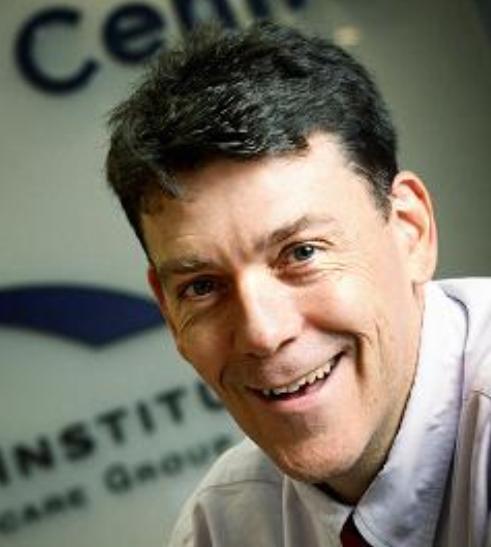 Associate Professor Michael Back is Director of Radiation Oncology for the Northern Sydney Cancer Centre at the Royal North Shore Hospital, Sydney. His research interests include implementation of sophisticated radiation therapy techniques for patients with high grade glioma. He is a member of the COGNO National Clinical Trial Committee for the EORTC CATNON Study.
Associate Professor Michael Back is Director of Radiation Oncology for the Northern Sydney Cancer Centre at the Royal North Shore Hospital, Sydney. His research interests include implementation of sophisticated radiation therapy techniques for patients with high grade glioma. He is a member of the COGNO National Clinical Trial Committee for the EORTC CATNON Study.
DR BRYAN DAY
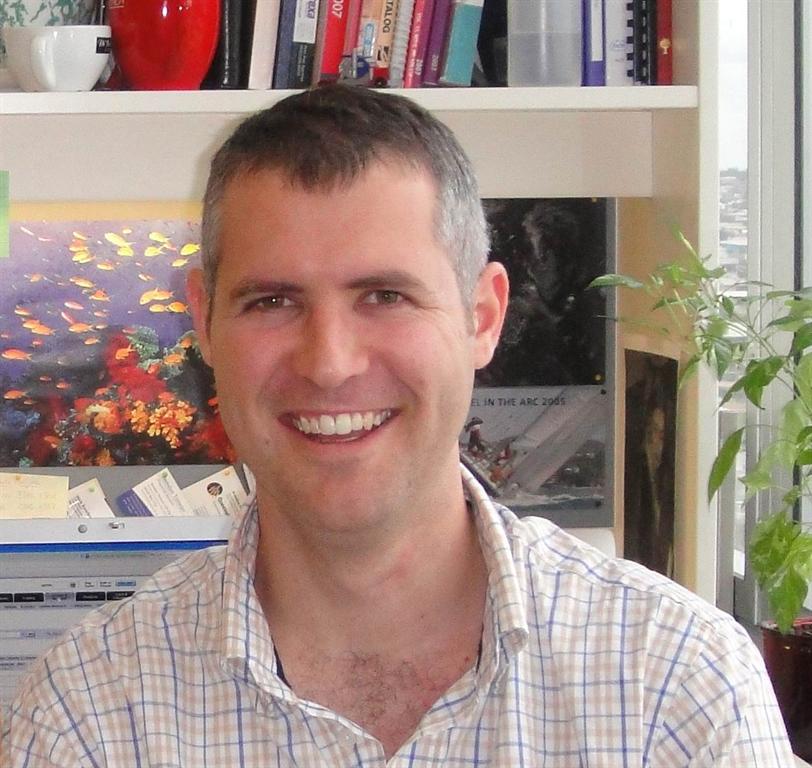 Dr Bryan Day is a postdoctoral scientist working in the Brain Cancer Research Unit at the Queensland Institute of Medical Research, Brisbane, Australia. His main research interest focuses on understanding brain cancer cell biology, broadly focussing on three main areas:
Dr Bryan Day is a postdoctoral scientist working in the Brain Cancer Research Unit at the Queensland Institute of Medical Research, Brisbane, Australia. His main research interest focuses on understanding brain cancer cell biology, broadly focussing on three main areas:
- The receptor tyrosine kinase family of Eph receptors and their role in stem cell maintenance and lineage plasticity in GBM
- The Bcl-2 family of anti-apoptotic proteins, in particular Mcl-1 and its regulation and role in conferring resistance to traditional therapies in GBM
- Discovery of new therapeutic agents for treatment of GBM and how therapeutic sensitivities correlate with GBM cell subtypes and molecular profile.
DR KATHRYN FIELD
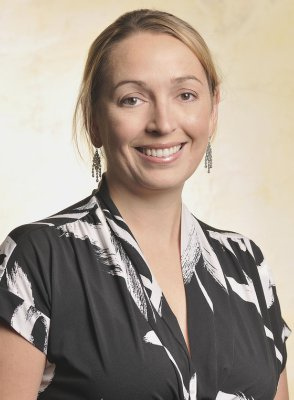
Dr Kathryn Field is a medical oncologist and clinical research fellow from the Royal Melbourne Hospital and the Ludwig Institute For Cancer Research, Parkville Branch. Her areas of interest are in neuro-oncology and colorectal cancer research.
She is currently completing her postgraduate Doctor of Medical Science through the University of Melbourne, and is the Australian Principal Investigator for the CABARET clinical trial for recurrent glioblastoma.
DR KEITH GILES
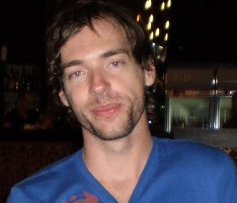 Dr Keith Giles is a post-doctoral research associate at the Western Australian Institute for Medical Research. He is interested in the role of the epidermal growth factor receptor (EFGR) and its downstream signalling pathways in cancers such as glioblastoma, the mechanisms of resistance to inhibitors of these pathways, and the role of microRNAs as regulators of glioblastoma formation and progression. Keith has received NHMRC funding and a Cancer Council WA Early Career Investigator grant to pursue his work on microRNAs and glioblastoma. He has attended a high-throughput microRNA profiling workshop at the European Molecular Biology Laboratory (EMBL) in Heidelberg, Germany, has co-authored several research papers, review papers and a book chapter on microRNAs as regulators of ErbB receptor signalling in cancer, and is an inventor on several patents involving microRNAs and glioblastoma.
Dr Keith Giles is a post-doctoral research associate at the Western Australian Institute for Medical Research. He is interested in the role of the epidermal growth factor receptor (EFGR) and its downstream signalling pathways in cancers such as glioblastoma, the mechanisms of resistance to inhibitors of these pathways, and the role of microRNAs as regulators of glioblastoma formation and progression. Keith has received NHMRC funding and a Cancer Council WA Early Career Investigator grant to pursue his work on microRNAs and glioblastoma. He has attended a high-throughput microRNA profiling workshop at the European Molecular Biology Laboratory (EMBL) in Heidelberg, Germany, has co-authored several research papers, review papers and a book chapter on microRNAs as regulators of ErbB receptor signalling in cancer, and is an inventor on several patents involving microRNAs and glioblastoma.DR NICK GOTTARDO
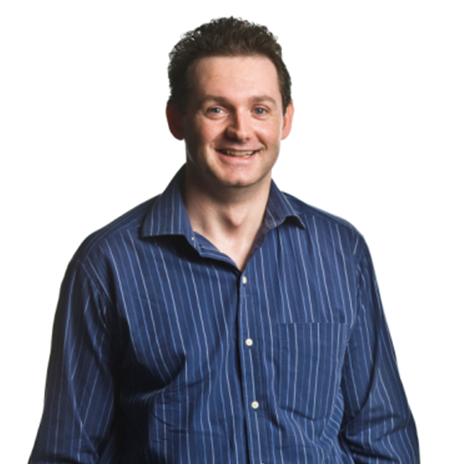
Dr Gottardo is a graduate in Medicine from the University of Leeds Medical School, Leeds, United Kingdom. He undertook Paediatric training and a Fellowship in Paediatric Oncology and Haematology at Princess Margaret Hospital for Children. During this fellowship, he completed a PhD in Paediatric Cancer Biology at the Telethon Institute for Child Health Research, under the supervision of Professor Ursula Kees. He was awarded his PhD in December 2008. He completed a three-year Fellowship in Paediatric Neuro-Oncology at St Jude Children's Research Hospital, Memphis, USA, one of the leading instituteions in the world for research and treatment of childhood brain tumours, under the supervision of Professors Richard Gilbertson and Amar Gajjar. Dr Gottardo developed extensive experience and expertise with mouse modesl of cancer and the molecular characterisation of tumour samples, having developed the first spontaneous mouse model of ependymoma during his fellowship at St Jude Children's Research Hospital. Dr Gottardo presented this work at the International Symposium on Paediatric Neuro-Oncology (ISPNO) in Chicago 2008, the premier paediatric Neuro-Oncology conference held bi-annually, and was awarded the Young Investigator Award for scientific excellence.
In August 2008 he commenced a position as a Consultant Paediatric Oncologist/Neuro-Oncologist at Princess Margaret Hospital for Children and in January 2009 he was awarded the Telethon Institute for Child Health Research and University of Western Australia John Lillie Childhood Cancer Research Fellowship to establish his own Brain Tumour Research laboratory and he was appointed co-leader of the Brain Tumour Programme.
His main area of interest lies in the molecular pathogenesis of paediatric brain tumours, with a special interest in translational research, with an emphasis on molecular targeted therapies. Since establishing his own laboratory at The Telethon Institute for Child Health Research he has developed novel orthotopic xenograft mouse tissue model systems, utilising a unique panel of brain tumour cell lines established from primary paediatric patient tumour tissue. His laboratory routinely isolates and cultures tumour cells from primary patient specimens in order to establish additional models. He is a member of the Children's Oncology Group (COG), a large US-based international clinical trial cooperative group. He was recently appointed Study Chair for the upcoming COG Average Risk Medulloblatoma Phase III clinical trial. He is also Princial Investigator for the Australian Children's Cancer Trials (ACCT) group for Princess Margaret Hospital for Children, a cooperative group whose aim is to establish early phase drug development programmes in Australia for children with resistant or recurrent cancer. He will take over as co-chair of ACCT in 2012.
ASSOCIATE PROFESSOR TERRY JOHNS
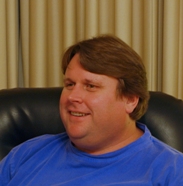 After completing a PhD in 1993 at Monash University, where he worked on interferon and melanoma, A/Prof Johns joined Prof Claude Bernard's multiple sclerosis group. During his time there, he developed a new animal model of multiple sclerosis that remains the gold standard today. In 1998, A/Prof Johns commenced at the Ludwig Institute in Melbourne and went on to establish the Oncogenic Signalling Laboratory. The main focus of the laboratory was the development of antibodies that target receptors important to the survival and growth of cancer. Of particular note was the development of mAb 806, a cancer-specific antibody directed to the EGFR that has been licensed to Abbot. A/Prof Johns joined Monash University in March 2008, moving his laboratory with him. He continues to develop novel therapeutic antibodies designed to treat cancer. He has an emphasis on glioma and receptor tyrosine kinase
After completing a PhD in 1993 at Monash University, where he worked on interferon and melanoma, A/Prof Johns joined Prof Claude Bernard's multiple sclerosis group. During his time there, he developed a new animal model of multiple sclerosis that remains the gold standard today. In 1998, A/Prof Johns commenced at the Ludwig Institute in Melbourne and went on to establish the Oncogenic Signalling Laboratory. The main focus of the laboratory was the development of antibodies that target receptors important to the survival and growth of cancer. Of particular note was the development of mAb 806, a cancer-specific antibody directed to the EGFR that has been licensed to Abbot. A/Prof Johns joined Monash University in March 2008, moving his laboratory with him. He continues to develop novel therapeutic antibodies designed to treat cancer. He has an emphasis on glioma and receptor tyrosine kinase networks.
DR KERRIE McDONALD
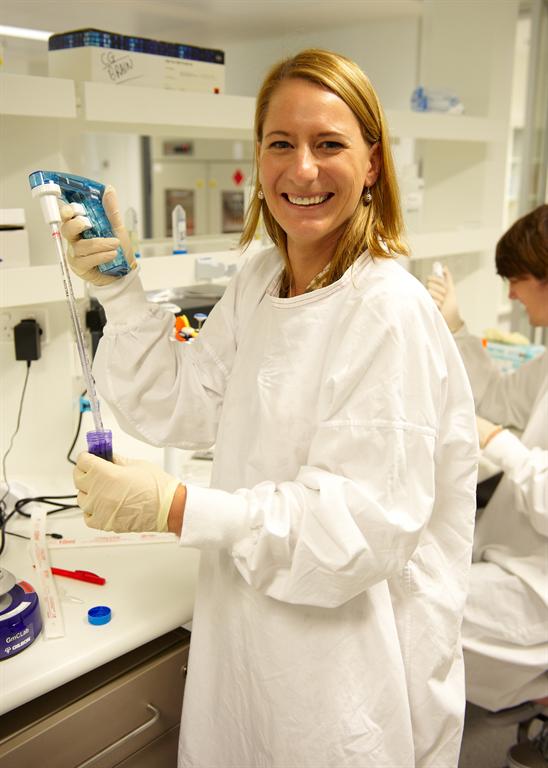
Dr Kerrie McDonald is the Chair of the Cure For Life Neuro-oncology Group at the Lowy Cancer Research Centre, UNSW. She runs a team of 11 scientists and students working on better understanding tumour resistance and subsequent tumour relapse. Specifically, her group is using proteomics techniques to discover predictive biomarkers of treatment, examining the biology of tumours which have recurred after treatment, exploring sphingolipid biology and its contribution to disease resistance, glioma migration and testing novel drugs at tumour relapse.
DR THOMAS MIKESKA

Dr Thomas Mikeska is a Senior Postdoctoral Rsearcher in the laboratory of A/Prof Alexander Dobrovic at the Peter MacCallum Cancer Centre, Melbourne, and also an Honorary Fellow at the University of Melbourne, Australia. His research includes genetic and epigenetic alterations of cancer-related genes. In addition, he has a strong research interest in the development of diagnostically-friendly DNA methylation detection methodologies and in the design of gene-specific DNA methylation-based biomarker assays, in particular for MGMT.
DR CLAIRE PHILLIPS
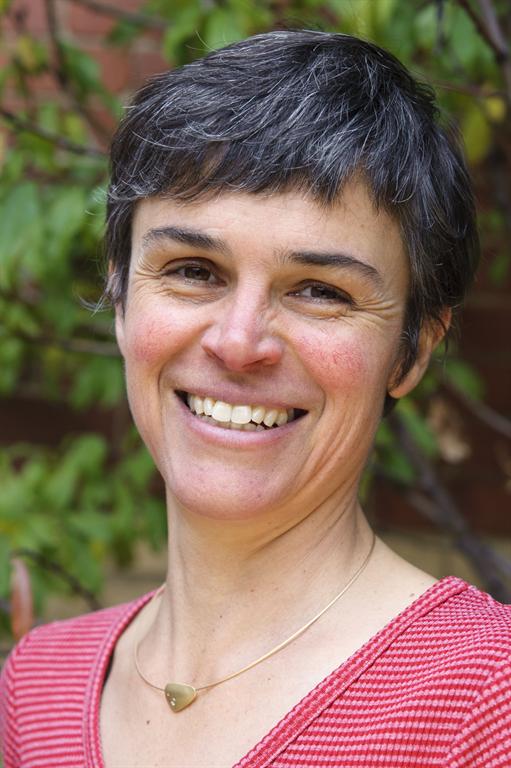
Dr Claire Phillips is a consultant radiation oncologist at The Peter MacCallum Cancer Centre, Melbourne, and an honorary radiation oncologist at the Royal Melbourne Hospital, Melbourne. After a fellowship in breast and paediatric radiation oncology, she now sub-specialises in breast and adult neuro-oncology. She is actively involved in clinical trials in both neuro-oncology and breast cancer and is TROG co-chair for the NCIC/EORTC/TROG phase III trial of glioblastoma in the elderly. She has a special interest in ocular oncology with a research interest in improving visual outcome after stereotactic radiotherapy for primary choroidal melanoma.